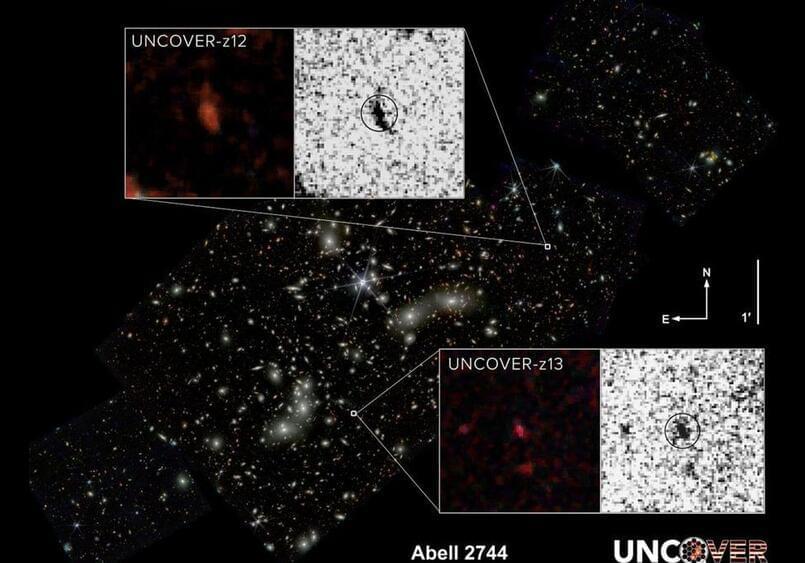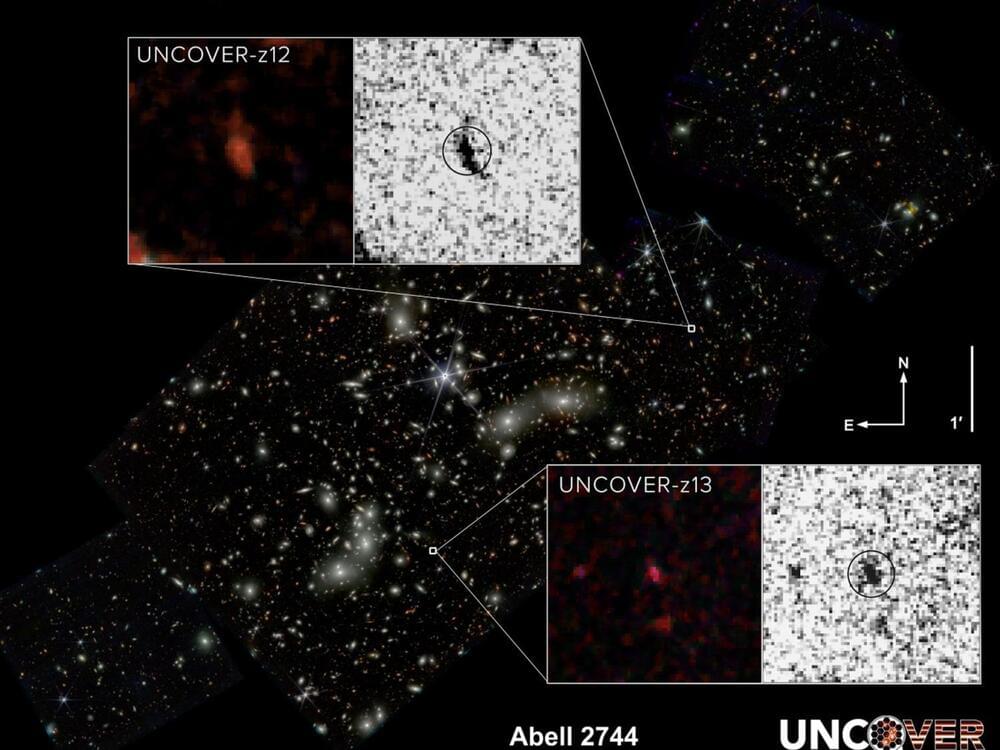The 93%-full waxing gibbous moon and a bright Jupiter will make a close approach in the night sky tonight.




Upon completion of Mission 1, Astrolab’s FLEX will become the largest and most capable rover to ever travel the Moon, claims the company.
Venturi Astrolab.
One such firm is Monacco-based lunar technology startup Venturi Astrolab which initiated its electric lunar rover programme in 2019. The Venturi group has leveraged its experience of designing and manufacturing high-performance electric vehicles since 2000 to develop its maiden rover called the Flexible Logistics and Exploration (FLEX), which is scheduled to land on the Moon in 2026.


The DOE’s shipment of 0.5 kilograms of plutonium-238 to Los Alamos National Laboratory marks a milestone in producing fuel for NASA
Established in 1958, the National Aeronautics and Space Administration (NASA) is an independent agency of the United States Federal Government that succeeded the National Advisory Committee for Aeronautics (NACA). It is responsible for the civilian space program, as well as aeronautics and aerospace research. Its vision is “To discover and expand knowledge for the benefit of humanity.” Its core values are “safety, integrity, teamwork, excellence, and inclusion.” NASA conducts research, develops technology and launches missions to explore and study Earth, the solar system, and the universe beyond. It also works to advance the state of knowledge in a wide range of scientific fields, including Earth and space science, planetary science, astrophysics, and heliophysics, and it collaborates with private companies and international partners to achieve its goals.


The second-and fourth-most distant galaxies ever observed have been discovered in a region of space known as Pandora’s Cluster, or Abell 2,744, using data from NASA’s James Webb Space Telescope (JWST). Following up on a deep field image of the area, an international team led by Penn State researchers confirmed the distance of these ancient galaxies and inferred their properties using new spectroscopic data — information about light emitted across the electromagnetic spectrum — from JWST. At nearly 33 billion light years away, these incredibly distant galaxies offer insights into how the earliest galaxies might have formed.
Unlike other galaxies confirmed at this distance that appear in images as red dots, the new galaxies are larger and appear like a peanut and a fluffy ball, according to the researchers. A paper describing the galaxies appears today (Nov 13) in the journal Astrophysical Journal Letters.
“Very little is known about the early universe, and the only way to learn about that time and to test our theories of early galaxy formation and growth is with these very distant galaxies,” said first-author Bingjie Wang, postdoctoral scholar in the Penn State Eberly College of Science and a member of the JWST UNCOVER (Ultradeep NIRSpec and NIRCam ObserVations before the Epoch of Reionization) team that conducted the research. “Prior to our analysis, we knew of only three galaxies confirmed at around this extreme distance. Studying these new galaxies and their properties has revealed the diversity of galaxies in the early universe and how much there is to be learned from them.”
Auteur: Dr.Nonthapat PULSIRI (La Chaire SIRIUS, France), sous la direction de Dr.Victor DOS SANTOS PAULINO (La Chaire SIRIUS, France)
Langue française vérifiée par MM. Julia GOUT, Institut Catholique de Toulouse
Remarque: Cet article est publié par “Tota Pulchra” au Vatican
Lien: https://totapulchra.news/art-chretien-exploration-spatiale/
———-
L’être humain est fascinant car il évolue au sein de la société. Cette évolution implique la croyance, la capacité d’adaptation, la résilience et la faculté de croître. De plus, une société bienveillante encouragera également le développement durable en contribuant à la construction de la civilisation et à la paix. Pendant ce temps, l’art est parallèlement en correspondance avec la civilisation humaine puisqu’il reflète et façonne les aspects culturels, sociaux et historiques des sociétés humaines à travers l’histoire.
Cependant, l’art est considéré comme une forme d’amour et de passion, à travers laquelle les artistes s’engagent dans la communication, exprimant leurs idées et perspectives qui résonnent avec leur état d’esprit du moment. Il illumine la progression de la civilisation humaine. Les origines des arts humains, particulièrement les peintures rupestres, remontent à l’époque préhistorique. Ces créations étaient profondément associées aux modes de vie, aux cultures et aux civilisations de cette époque. Parmi les exemples très connus sont inclus la grotte Chauvet en France, la grotte El Castillo en Espagne et la grotte de Bhimbetka en Inde (Fig. 1).
Fig 1: Grotte Chauvet — France (gauche), grotte El Castillo — Espagne (centre), et grotte de Bhimbetka — Inde (droite) / Sources: Ministère de la Culture de France, Science, Wikimedia commons
De plus, les récits théologiques et culturels du christianisme ont contribué à une variété de peintures chrétiennes captivantes, allant de l’art chrétien primitif jusqu’à nos jours. La période de l’art chrétien primitif (IIe au IVe siècle) a prospéré dans les catacombes de Rome et d’autres sites funéraires. Ces peintures-là étaient principalement symboliques et représentaient des scènes dans l’histoire de l’Ancien et du Nouveau Testament. Les peintres se concentraient également sur l’expression de la confiance et de l’espoir de manière discrète au milieu des défis de la persécution et de la mortalité. Ainsi, ces peintures vont au-delà de la simple imagination car elles agissent comme des moyens de communication pour les croyants, leur permettant de se consacrer et de professer leur confiance dans le christianisme. Les scènes peintes présentent aussi la vie de Jésus Christ, comme la nativité, l’enseignement, la crucifixion et la résurrection.
Fig 2. L’art chrétien primitif « Jésus Christ et les Apôtres » à Rome / Source: Wikimedia commons
Après cette période-là, le christianisme s’est tourné vers l’art byzantin (du IVe au XVe siècle) avec l’établissement du christianisme byzantin dans l’Empire Romain d’Orient. Un nouveau style artistique est apparu sous la forme de perspective plate et abstraite, avec des arrière-plans richement ornés et une utilisation extensive de feuilles d’or et de mosaïques pour transmettre les récits. Dans l’ensemble, les peintures influencées par le style byzantin dans le christianisme ne se limitent pas à l’esthétique, puisqu’elles englobent pareillement une connexion spirituelle avec Jésus Christ, la Vierge Marie et les saints, comme illustré sur Fig. 3.

In a groundbreaking feat, a deep space experiment travelling on NASA’s Psyche spacecraft has successfully transmitted data via a near-infrared laser to Earth from 16 million kilometres away!
A deep space experiment traveling on NASA’s Psyche spacecraft has just beamed a message via laser to Earth from far beyond the Moon for the first time, an achievement that could transform how spacecraft communicate.
In the farthest-ever demonstration of this type of optical communication, the Deep Space Optical Communications (DSOC) beamed a near-infrared laser encoded with test data from its position around 16 million kilometers (10 million miles) away – which is around 40 times farther than the Moon is from Earth – to the Hale Telescope at Caltech’s Palomar Observatory in California.
The DSOC is a two-year tech demonstration riding along on Psyche as it makes its way to its prime target, asteroid Psyche. The demo achieved “first light” on November 14, according to NASA’s Jet Propulsion Laboratory (JPL), which manages both missions, thanks to an incredibly precise maneuver that saw its laser transceiver lock onto JPL’s powerful uplink laser beacon at its Table Mountain Observatory, which allowed the DSOC’s transceiver to aim its downlink laser at Caltech’s observatory 130 kilometers (100 miles) away.